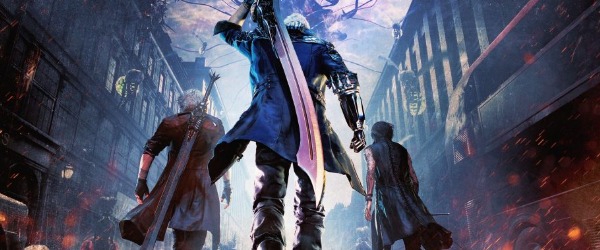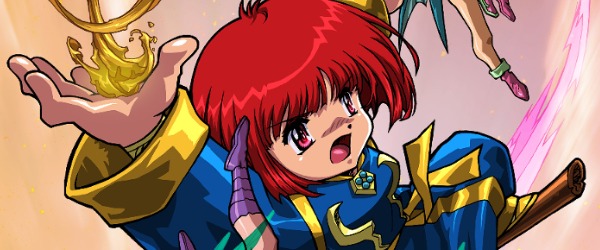
Why Arkham Origins is the Best Batman Game - Article
by Jake Weston , posted on 26 March 2014 / 52,464 ViewsAfter writing about games on the internet for a few years, you find yourself going through different phases. When you first start, you enthusiastically begin editorializing the countless discussions you’ve had with your gamer friends, producing a plethora of articles featuring opinions that, you find out later, are actually pretty common*. Prompted to elevate your quality of writing, you then take on in-depth, critical and social analysis of various games, but then that loses steam after a while because that’s, like, hard work, man. So your writing loses luster and you lose your passion for a while, and then you realize you’ve long been sitting on these controversial, outspoken opinions; opinions that you can write and push to publish for those sweet, sweet clicks.
So, let’s talk about why Batman: Arkham Origins is actually the best Batman game.
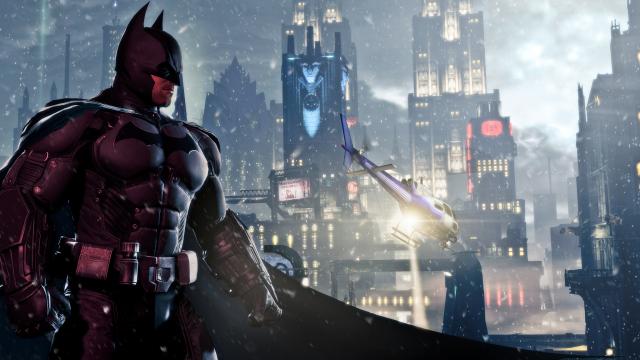
Of course, we should probably begin by pointing out that Batman games generally weren’t very good until the 2009 release of Batman: Arkham Asylum. I suppose you could make an argument for the 1989 NES Batman game, but no game truly made you feel like the Dark Knight until Arkham Asylum, with its effortless combination of ninja stealth, freeflow combat, and gadget-based environmental puzzles. Its sequel, Batman: Arkham City, expanded and improved all of these concepts and threw them into a larger open-world with an increased cast of villains, and is generally considered by the masses to be the best Batman game (more on that later).
Released last year, Batman: Arkham Origins is considered by many to be the first disappointment in the Arkham franchise, for a multitude of reasons. Developed by Warner Bros. Montreal, as opposed to Asylum and City developers Rocksteady Studios, Batman: Arkham Origins carries a plethora of stylistic and technical differences from its predecessors. It’s also a prequel to those two games, disappointing those who were hoping to see the story continue from the foundations laid at the end of Arkham City. Finally, Arkham Origins controversially reused many aspects from Arkham City, such as many gadgets and combat animations, as well as large sections of the world map. All in all, this combination of factors led to a lukewarm public reception, as well as the lowest aggregate review scores for the Arkham series.
Despite the seeming consensus that Arkham Origins is the weakest of the Batman: Arkham games, I disagree entirely. The ways that Arkham Origins compares to its predecessors are what makes it not just a great game, but the best entry in the Arkham sub-series thus far.
From the beginning, WB Montreal had the odds stacked against them. Rocksteady successfully defined THE modern interpretation of Batman in video games. Who were these guys - from a studio that had yet to develop a game - to take Rocksteady’s hard work for a new entry? Just like Eidos Montreal with Deus Ex: Human Revolution, 2K Marin with BioShock 2, and Bethesda Game Studios with Fallout 3, studios which initially had the public oppose them simply for not being Looking Glass Studios, Irrational Games or Black Isle Studios, respectively, WB Montreal was not a popular choice to create the next Batman: Arkham game. However, while Arkham Origins keeps Arkham City’s general underlying gameplay mechanics, it changes enough in other areas to be considered superior to Arkham Asylum and Arkham City.
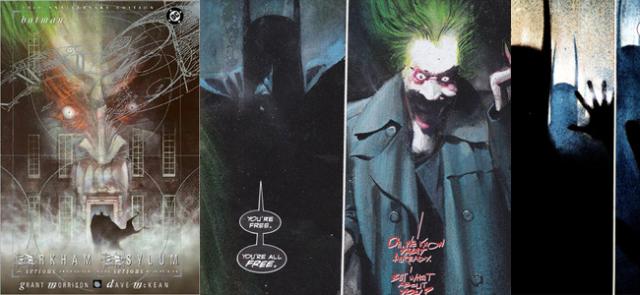
Stylistically, Arkham Origins is a departure from the previous games. Arkham Asylum and Arkham City were overtly gothic, which of course makes sense given the main artistic inspiration for them was Grant Morrison’s 1989 graphic novel, Arkham Asylum: A Serious House on a Serious Earth. The incredibly expressionistic, exaggerated and horrifying artwork’s influence can be seen everywhere in Asylum and City, and many were disappointed to see this toned back to a more realistic look in Origins.
But it only makes sense - Batman: Arkham Origins takes place far before the majority of Gotham’s rogues gallery makes its appearance. Indeed, the game takes place before Arkham Asylum is even built, with the events of Origins being the instigator of the asylum’s construction in the first place (hence the “Origins” of the title). Gotham has not yet succumbed to the madness that Batman and his villains have invoked. As the game progresses, you can even see the game’s progression from being fairly grounded in reality to all hell breaking loose and the more familiar “Arkham” art style emerging.
In terms of story, Arkham Origins is a massive improvement over the other games in the series, rectifying every storytelling misstep in the previous entries. Arkham Asylum has the benefit of being a focused, concentrated story, taking place over the course of one night in one location (essentially a Batman-ified “Die Hard"), with a few core villains that all connect to each other in thoughtful and logical ways, but ultimately never accomplishes much emotionally or has Batman change or grow in any major way.
Arkham City attempts to rectify this, but in turn presents a dilute, sloppily-held together story in which many confuse villain quantity and cameos for quality writing. Characters are connected to each other in the loosest way possible, and each scenario against one of Batman’s villains feels disconnected from the overarching story. The game heavily sets up the mystery of Hugo Strange’s “Protocol 10”, which is later revealed to be a simple and boring plot to destroy the city. Furthermore, Hugo Strange’s knowledge of Batman’s secret identity is presented as a huge threat, but the story never does anything with this, completely tapering off after the opening cutscene. By far the moment that drew the biggest reaction - the death of the Joker - ultimately holds no weight, as we really don’t see Batman’s emotional aftermath (i.e. the game ends like two minutes after Joker dies and it’s incredibly abrupt).
Conversely, Arkham Origins tells a much more conservative, tightly-wound story compared to the bloated Arkham City. This is perhaps helped by its status as a prequel. Batman is still early on in his career, has yet to encounter any major supervillains, and still has room to grow and develop as a character. The plot setup - eight assassins have been hired to hunt down and kill Batman on Christmas Eve - gives more agency to the story, as Batman must always be on the lookout for an attack during his investigation, as opposed to villains just patiently waiting in their lairs a la Arkham City. Batman’s first encounter with the Joker is as effective as it is chilling. The seeming underplaying of Batman’s discovery of his name providing dramatic irony given the audience’s history with the character. Despite being a prequel, Arkham Origins never feels like it’s treading old ground, providing new insights into this world and its characters (which is what any good prequel should do), and provides more character development for Batman and the Joker than Arkham Asylum and Arkham City combined.
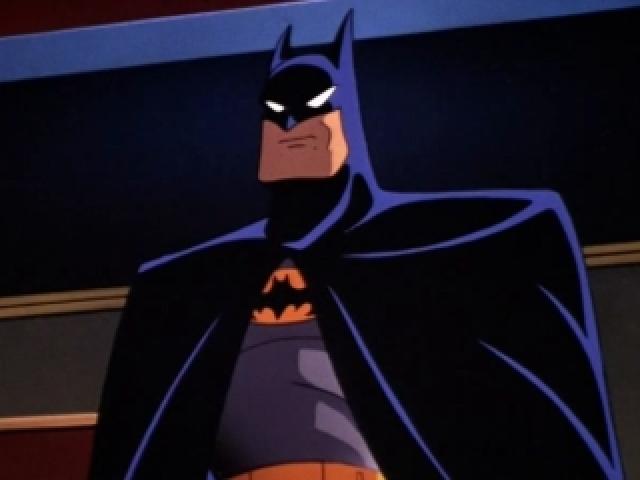
This is aided by the voice performances by the two new leads - Roger Craig Smith as Batman and Troy Baker as the Joker. Many were initially upset by the fact that Kevin Conroy and Mark Hamill were not returning for Batman and Joker, respectively, and for admittedly good reason. Both have been performing as the characters for over twenty years, from Batman: The Animated Series, to its follow-ups in Justice League, Justice League Unlimited, and Batman Beyond, and, of course, Arkham Asylum and Arkham City. To a whole generation, Kevin Conroy is THE Batman; Mark Hamill is THE Joker. Their performances featured in Arkham Asylum and Arkham City add to the whole authenticity of the experience. Bringing in new voices for the leads in Arkham Origins - a game that already had the public perception against it - was seen as being akin to sacrilege.
But looking at it from a distance, this change is justified. Arkham Origins takes place five years before the other games - keep in mind Kevin Conroy and Mark Hamill are old men now - and it only makes sense to bring in younger actors for the younger versions of the characters. Further, Conroy’s and Hamill’s performances, though iconic, were beginning to grow stale. Recent performances by Conroy reveal that he is incapable of expressing emotion other than “stoic badass”, and Hamill’s Joker has become safe and predictable. Comparatively, Roger Craig Smith and Troy Baker are bonafide great in Arkham Origins. Both do their best to impersonate their predecessors, but add a range in performance that is not present for the characters in Asylum or City. Batman expresses stoicism, but also doubt, insecurity, rage, warmth, kindness - Roger Craig Smith’s performance paints Batman as an actual human being, albeit one that is troubled. Meanwhile, Troy Baker’s fresh take on insanity brings an unpredictability to the Joker, a kind that hasn’t been seen since... well, since Mark Hamill took on the character two decades ago. If provided with more performances under his belt, Baker’s Joker could conceivably rise to equal or better that of Hamill’s.
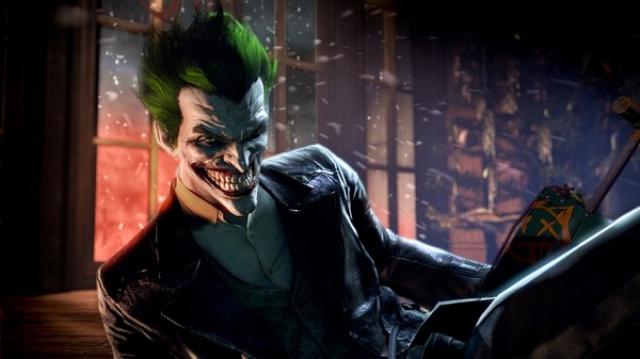
Story and presentation are outstanding in Arkham Origins, but the most common criticism levied against it is that its gameplay doesn’t differentiate itself from Arkham City, and in many cases is an apparent downgrade. And while perhaps this is true in some regards, as Origins certainly reuses abilities and animations from Arkham City, and there are a few technical issues here and there, the new additions more than make up for it. At its core, Arkham Origins is basically the same gameplay as Arkham City but with new features added. I don’t see how that’s a bad thing. The martial artist enemy that is able to counter Batman’s own counter-attacks adds a new depth to the combat, and as a whole combat scenarios require more clever use of Batman’s full range of abilities. Much has been made about the Shock Gloves, which after building up a combo meter can be activated to take down enemies more quickly. A common complaint is that it simply makes the game too easy. To that, I counter that it’s simply an optional means to get through the game’s many, many combat sections faster, and those who don't like it can choose to not use them. Since when is giving the player more options considered a bad thing?
Regardless of how you feel about Arkham Origin’s combat, it can’t be denied that it has by far the best boss fight design in the series. Arkham Asylum and Arkham City, for all their praise, have boss fights that are, simply put, balls. Arkham Asylum’s three boss fights are exemplary in poor game design, being more puzzles than actual encounters against Batman’s nemeses, with any actual combat being relegated to regular thugs thrown in intermittently. Arkham City shows a minor improvement, with the Mr. Freeze encounter being the admitted high point in the series, but for the most part bosses in Arkham City hold the same design flaws present in Arkham Asylum. Meanwhile, boss fights against Arkham Origin’s foes feel like actual FIGHTS, showdowns that test Batman’s abilities against opponents on equal footing. Killer Croc, Bane, Deathstroke, Firefly, Shiva, Copperhead; Arkham Origins’ boss encounters are not only numerous but test Batman’s abilities in creative ways, each bringing something new to the game.
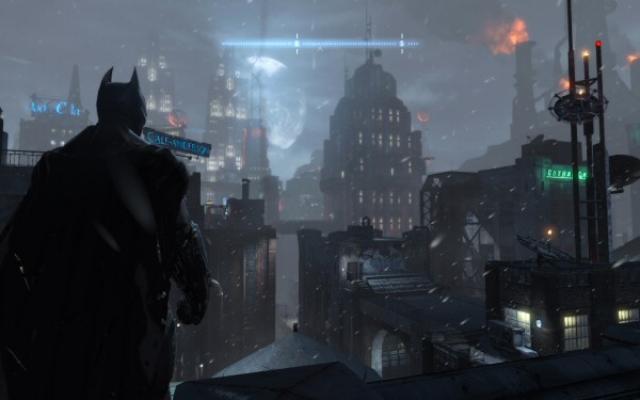
Perhaps the most damning criticism of Arkham Origins is the fact that it reuses a chunk of Arkham City’s world map, essentially copying and pasting City's map and building layout. Arkham Origins does in fact provide a whole new area of Gotham as well, essentially doubling the size of Arkham City, but for many the reusing of assets was seen as lazy and indicative of the overall quality as whole. But WB Montreal didn’t simply just copy and paste Arkham City’s map - it used it as a foundation on which to build a new playground. Aesthetically, Arkham Origins' overworld is completely different from Arkham City, due to taking place years before the city is walled off to become a prison, and as a result it feels much, much different than it did before. The overall building layout may be the same, but traversing it feels anything but. Areas that were previously flooded in Arkham City are not in Origins, further changing the layout. Finally, Arkham City’s “Wonder Tower”, which lied at the center of the map and was impossible to climb over and was a huge pain to travel around, has been removed completely, greatly increasing the traversal options in Arkham Origins.
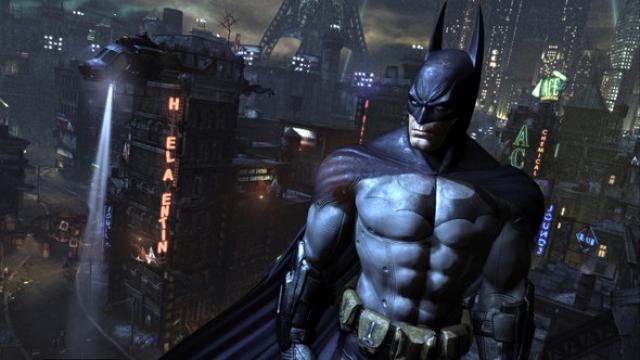
Not only do detractors completely ignore the redesigned map, or the new areas that double Arkham Origins’ overall size compared to Arkham City, but also ignore the new quick-travel feature brought on by the addition of the Batwing. Both Arkham Asylum and Arkham City suffered from extended backtracking, and the addition of the Batwing’s fast-travel improves Arkham Origins’ pace considerably. And, like the Shock Gloves, fans of the previous games who don’t like it can simply elect to ignore it.
In the end, it seems like the backlash to Batman: Arkham Origins is brought on by the changes WB Montreal made to the franchise. And while readers are more than welcome to disagree that these changes were positive, I still applaud WB Montreal for trying to add their own take to the Arkham sub-series, rather than feel beholden to the legacy of Rocksteady Studios. With Rocksteady and Kevin Conroy set to return to the series with the recently announced Batman: Arkham Knight, fans will no doubt receive what Batman: Arkham Origins didn’t offer them. With Batman: Arkham Origins' mixed critical reception and Arkham City’s universally positive reception, however, I doubt that Rocksteady will take on any lessons learned from Arkham Origins, nor address many of the criticisms I have towards City. I look forward heavily to Batman: Arkham Knight, as this whole series so far has been excellent, but Batman: Arkham Origins will always hold a special place in my heart, and in my view, will likely remain the best Batman game.
*It is entirely possible this only applies to me and my spectacularly poor writing.
More Articles
This article captures exactly how I feel about Arkham Origins. As the article anticipates, all of the improvements of Origins were ignored for Knight, which really just feels like Rocksteady went too far.
I loved how Arkham Origins felt so true to the DC characterisations of Batman, Joker, Alfred et al, and how it vitally included some humour alongside the overbearing grittiness. Knight, on the other hand, just fell down the City rabbit hole. Ludicrous story ("Lucius, I need a way to track underground root networks" "I might have something"), completely self-serious (which makes things like Riddler Racetracks appear insane), terrible boss fights and... Batmobile.
Seemingly all people could talk about when Origins came out was how it didn't offer anything new. Well, what did Arkham Knight offer? It looks better, yes. Because it 'next' generation. Apart from that, basically there's a Batmobile. That has drone fights. And has a power winch. Repeat x 1000.
I also like how this article touches on the emotion in Arkham Origins. Batman really is presented as a conflicted figure sometimes, and the Joker segment with Harley in Blackgate was amazingly done, giving some insight into the character. On the other hand, despite everything that is going on in Knight, for the majority Batman just feels... dead inside. [SPOILERS] When Barbara shoots herself, the moment just has no weight at all. Which is madness. I've never felt so little... the staging was just far too quick, and had such little impact [/SPOILERS].
Anyway, just wanted to add to this article post-Knight. Honestly, I feel bad for WB Montreal. They were clearly passionate about the game, and were aware of the massive pressure they were under. To have their creation judged as a throwaway by default, just because it wasn't Rocksteady... that's an injustice. I can only hope they get another chance, perhaps for a Suicide Squad game that's hinted at the end of Origins.
BTW - WB Montreal's Batgirl Knight DLC had the wittiest dialogue in the whole of Knight.








